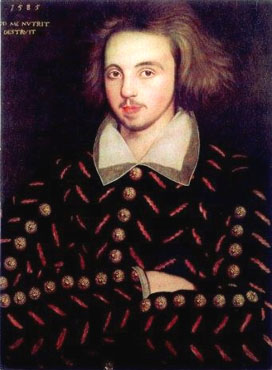You may ask “Why Malta?”:
Is it very common for readers of The Tempest to identify the exiled Prospero with the author of Hamlet, Macbeth, and all the other plays? If Marlowe survived beyond 1593, then is it likely he was in exile just like Prospero?
Are there scholars of impeccable reputation who say the setting of The Tempest is a Mediterranean island? Is this island setting of The Tempest somewhere between Tunis and Naples? Where is Malta in the Mediterranean?
Does the shipwreck scene in The Tempest have any similarities to St. Paul’s shipwreck on Malta as described in Acts of the Apostles in the New Testament? Have any scholars noted these similarities?
Did George Sandys visit Malta in June 1611? How long did he stay on Malta? Did he meet anyone with ties to England? Does his account of Malta in volume number four of the travelogue A Relation of a Journey... have any similarities to The Tempest?
Was The Tempest first staged in November 1611? Is it a short play? Is it possible that the writing of the play started in June 1611? Did the visit to Malta by George Sandys inspire the play?
Is the character Ferdinand in The Tempest consistent with a depiction of George Sandys? Is the line “Come unto these yellow Sands” in the song which introduces Ferdinand to the audience a reference to Sandys? Does another part of this same introductory song recall George, Duke of Clarence in Richard III?
How many Englishmen were on Malta in 1611? Is the uninhabited island of The Tempest the author’s metaphor for an island that is uninhabited by Englishmen?
Is the relationship between Prospero and Ariel a mirror-image of the relationship between Calypso and Odysseus? Where is Calypso’s cave located? Is the cave on a Maltese island?
Is Malta noted for its bees and its honey? Is Melita the old name for Malta? What does Melita mean? Is the memorable line, spoken by Ariel in the setting of The Tempest, “Where the bee sucks, there suck I” suggestive of Malta?
Does Ariel describe the strange lights of St. Elmo’s fire in The Tempest? Was it St. Elmo’s fire occurring on or near a Mediterranean island? Was there a Fort St. Elmo on Malta at the time The Tempest was written?
Is the reference to the game of chess in The Tempest suggestive of a game of war on a Mediterranean island? Were the words “king” and “queen” used in the play just prior to the mention of chess? What are the pieces in chess called? So then, is chess in The Tempest suggestive of knights, bishops, and castles on a Mediterranean island? Is this suggestive of the religious Knights of Malta playing their real-life war game on well-fortified Malta?
Is the foul-smelling, foreign-looking, gaberdine-clad Caliban suggestive of a Jew on a Mediterranean island? Is this reminiscent of Marlowe’s Jew of Malta?
Is the father-daughter tandem of Prospero and Miranda on a Mediterranean island reminiscent of Barabas and Abigail on Malta in Marlowe’s Jew of Malta?
Is the word “cross” used during the simultaneous wedding ceremony of four couples in As You Like It? Is this suggestive of an eight-pointed Maltese cross?
Was there an English merchant on Malta who was a commoner and a long time resident around the time period 1593-1611? What was his name? Is it likely he would need to be vouched for by Catholic nobility just to be there? °
What sort of place was Malta around the year 1600? Was it a rich and sophisticated place? Were a lot of young noblemen from all over Europe there? Did famous artists paint there? Did famous architects build there? Was it a good place for an experienced dramatist to write plays?
Assuming Marlowe survived beyond 1593, does the hypothesis of Malta as his primary location of exile answer more questions than it poses?
How familiar was Marlowe with the island of Malta? °
[above is taken from my HLAS post on January 15, 2002 (edited)]
Notes:
∆ Was there an English merchant on Malta … ? :
William Watts, an Englishman and a commoner, lived on the island of Malta for many years during the literary career of William Shakespeare. William Watts was the first English trade consul who was resident on the island of Malta. Very few details of his life are currently known.
∆ How familiar was Marlowe… ? :
Lisa Hopkins. “‘Malta of Gold’: Marlowe, The Jew of Malta, and the Siege of 1565”, Resoundings, 1.2 (1997). There is one section of this fascinating article by Professor Hopkins which deals with Marlowe’s detailed knowledge of Malta.
